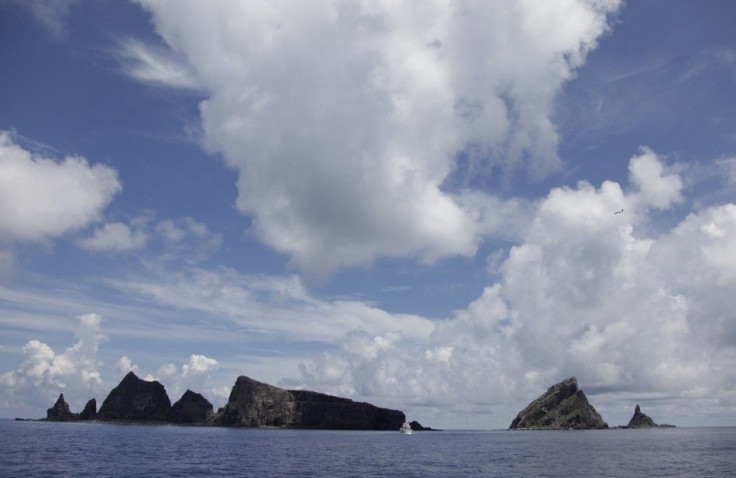China Aims Missile Radar At Japanese Vessel Near Disputed Islands

Tensions in the East China Sea continue to escalate over a group of disputed islands, as Japan accuses China of aiming a missile-guidance radar in the direction of a Japanese navy vessel.
Japan’s Defense Minister, Itsunori Onodera, lodged a formal protest against Beijing over the missile threat on Tuesday.
Onodera said that the incident happened at the end of January near the Senkaku (according to Japan) or Diaoyu (according to China) islands, when a warship locked its missile radar on the Japanese destroyer Yuudachi.
In a press conference in Tokyo, Onodera condemned China’s most recent actions in the disputed area for creating a dangerous environment.
“This is extremely abnormal behavior, and we believe with a small mistake it could have led to a very dangerous situation,” Onodera said. “It was a dangerous action.”
A professor at China’s National Defense University, China’s version of West Point, claims that China would only act if first provoked by the Japanese.
“If this is true, the Chinese ships would only have taken such steps to send a warning to Japanese naval vessels after being threatened by them,” Colonel Dai Xu said, as reported by the Financial Times.
Known as the Diaoyu Islands to the Chinese and the Senkaku Islands to the Japanese, the small cluster of islands in the East China Sea -- which may be sitting on vast oil reserves -- has been the cause of growing pressure on Sino-Japanese relations. This is not the first time China has made its military presence surrounding the islands known. Last October, the Japanese coast guard reported two incidents where Chinese surveillance ships were spotted in what Tokyo claimed was Japanese water. In December, the Japanese and Chinese military made contact near the islands. A Chinese maritime surveillance aircraft was spotted flying in Japanese-controlled airspace over the territory and was intercepted by several jet fighters from the Japan Air Self-Defense Forces.
Both Asian powers claim sovereignty over the islands. Last year, anti-Japanese protests turned violent in Beijing and other Chinese cities; sales of Japanese products in China have taken a hit.
Violence on the ground threatened the safety of Japanese expatriates and stability within China. Efforts to defuse tension have included diplomatic dialogue between the two nations at the top level. Japan's Deputy Foreign Minister Chikao Kawai met with several Chinese officials, including his counterpart, Zhang Zhijun, in Shanghai last fall.
That does not convince some experts, who believe the situation will end in an armed confrontation, perhaps even this year.
Hugh White, a professor at the Australian National University, made a prediction in an opinion piece published in the Sydney Morning Herald, saying that the current tug-of-war over the mutually claimed islands will spark another war. White even predicted that Japan’s ally, the United States, would also get involved.
© Copyright IBTimes 2024. All rights reserved.






















